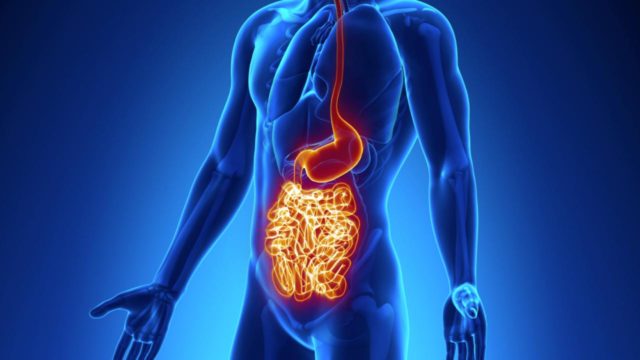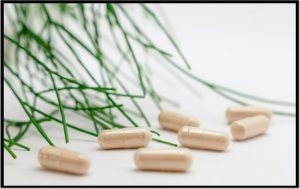I am sure most of you have heard of probiotics but are not quite sure of their relevance to human health. Probiotics are live microorganisms such as yeast and bacteria that we orally ingest and that are believed to have beneficial effects in our bodies, most specifically our digestive system. We take probiotics in the hopes of re-colonizing our digestive tract with “good” bacteria and thus overtaking “bad” bacteria, which have been linked to a variety of health problems.
An interesting fact: our microbiota is as metabolically active as our most active organ, the liver! (1). The type of interaction between all of our microbiota (mostly yeasts and bacteria) is very complicated, and science is just starting to understand how certain bacteria can cause various diseases. Many trials have been performed that administered probiotics to animals, mostly mice. As in my other blog about gut microbiota, I will stick to only studies involving humans, as I feel generalizing the results of animal studies to humans is very complex.
For the purpose of this blog, I will only talk about the effects of probiotics on ulcerative colitis and irritable bowel syndrome. Before writing this blog, I knew next to nothing about how probiotics can relieve the symptoms of these two diseases. Having irritable bowel syndrome myself, I was beyond excited to find research dealing with certain bacterial strains offering relief from symptoms of IBS (irritable bowel syndrome).
Probiotics and ulcerative colitis
Ulcerative colitis is a very serious inflammatory bowel disease marked by ulcers in the large intestine and rectum, which can lead to a seriously reduced quality of life and sometimes fatal complications. There is little to no chance of curing ulcerative colitis with probiotics or any other drug, at least in the near future. Even with effective medication, most people have relapses within a year. But a year is a really long time to be symptom-free! There have been mixed results in studies using probiotics to induce remission in ulcerative colitis patients. These mixed results are likely caused by different studies using different probiotic bacterial strains. I will not highlight the failed studies but instead focus on studies that have found particular probiotic bacterial strains to be useful in the management of ulcerative colitis.
The “Gold Standard” drug for treatment of ulcerative colitis is mesalazine (an anti-inflammatory drug) (2). A study spanning a year randomly assigned subjects with ulcerative colitis to : A) the probiotic group (probiotic Escherichia coli Nissle 1917) or B) the mesalazine drug group and compared the number of relapses in both groups (2). At the conclusion of the study, relapse rates were similar between both groups, with 33.9% of the subjects in the mesalazine group and 36.4% of the subjects in the probiotic group experiencing relapse. There were also no significant differences between groups on the duration and localization of the relapses. Compliance rates were similar between groups.
A similar study using the same non-pathogenic E. coli Nissle 1917 probiotic produced the same results. Once again, subjects with ulcerative colitis in remission were randomly assigned to the A) probiotic group or B) mesalazine medication group (3). The number of patients who maintained remission throughout the 12-month study was 68% of the patients in the probitoic group and 75% of the patients in the mesalazine group, with an average length of remission of 206 days in the mesalazine group and 221 days in the probiotic group (3).
Lastly, another study used a probiotic strain called Lactobacillus rhamnosus GG strain (LGG) (4). Researchers divided ulcerative colitis patients into one of three groups: the first group took only Lactobacillus rhamnosus GG strain (LGG), the second group took Mesalazine 800 mg tablets, and the third group took both the probiotic and Mesalazine 800 mg tablets. At the end of the 12-month study, researchers found no difference in relapse rates between the three groups but found the probiotic group had a longer remission period than the medication or medication + probiotic group (4).
Probiotics and pouchitis
Sometimes ulcerative colitis can get so serious that a part of the diseased colon is removed, and the remaining bowel is surgically reconnected to the GI tract. While this offers some relief for those with ulcerative colitis, this surgery can produce serious adverse reactions, including something called pouchitis. Pouchitis is when the surgically created pouch in the small intestine becomes inflamed. Common symptoms include bloody diarrhea, urgency in passing stools, discomfort while passing stools, nausea, and pain. Probiotics have been shown to relieve these symptoms.
Some studies have shown that having pouchitis is associated with a low count of lactobacilli and bifidobacteria in the colon. Pouchtis usually responds well to antibiotic therapy, which shows that the bacterial makeup of the colon has a major impact on the occurrence of pouchitis. As those with pouchitis usually have repeated attacks, a trial aimed to see if probiotics could be used to reduce the occurrence of pouchitis relapses (5). Researchers randomly assigned subjects with pouchitis to one of two groups: one group took the VSL#3 probiotic formulation (consisting of lactobacilli, bifidobacteria, and Streptococcus salivarius), while the other group took a placebo (5). The study spanned nine months.
All 20 of the placebo patients had a relapse within the 9-month study period, while 17 out of 20 patients taking the probiotic did not have a relapse within the 9-month period (5). After the study and probiotic treatment ended, the 17 patients who had not relapsed during the study all had a relapse within 4 months of the study’s end (5). Compared to the concentrations at the start of the study, those receiving probiotics had a significant increase in the probiotic bacteria (lactobacilli, bifidobacteria, and Streptococcus salivarius) in their feces at the conclusion of the study (5). Other fecal bacteria concentrations did not change.
One month after the study ended, the concentrations of the probiotic bacteria returned to pre-study levels (5). This hints at the idea that probiotics must be taken every day to maintain the probiotic bacteria in the gut, and when one stops taking probiotics, the bacterial makeup of the colon reverts back to pre-probiotic levels.
Possible but unproven reasons why an E. coli probiotic may improve the microflora of the colon include the production of chemicals by the probiotic that kill pathogenic and non-pathogeneic enterobacteria, and E. coli’s metabolic activity may alter the pH of the colon to a degree that creates an inhospitable environment for bacteria that cause ulcerative colitis (5). In my previous blog, How bacteria in our gut affect our health and the negative impact of antibiotics, I went into more detail about how beneficial bacteria inhibit the growth of undesirable bacteria.
Probiotics and Irritable Bowel Syndrome
Irritable bowel syndrome (IBS) is a disorder that affects the large intestine (colon), resulting in abdominal pain, bloating, gas, and alternating bouts of diarrhea and constipation. Many people with IBS have altered gut flora, which may cause chronic low-grade inflammation (6). Also commonly seen in those with IBS is small bowel bacterial overgrowth (excessive bacterial growth) (6). IBS affects about 10–15% of the adult population (6).
A 4-week-long study randomly assigned 49 IBS patients to a placebo group or a multispecies probiotic group consisting of Bifidobacterium longum, B. bifidum, B. lactis, Lactobacillus acidophilus, L. rhamnosus, and Streptococcus thermophilus (7). At the end of the study, subjects who saw total relief of their IBS symptoms were 37.5% of those in the placebo group and 68% in the probiotic group (7). Self-reported ratings of abdominal pain and intensity of abdominal discomfort and bloating were significantly reduced at the end of the trial in the probiotic group but not in the placebo group (7).
Studies have shown that those with IBS have a lower than normal count of certain gut bacteria, including Lactobacilli and Bifidobacteria, which is why the researchers include these strains in the probiotics (7). A probiotic mixture called VLS#3 was found to be effective in reducing flatulence and reducing how long it took for feces to go through the GI tract and be excreted in patients with irritable bowel syndrome (faster transit time is better, as I have mentioned elsewhere). (8). There were no differences in abdominal pain or reports of bloating between the placebo group and the VLS#3 group.
Another study measured the effects of multispecies probiotic supplementation (Lactobacillus rhamnosus GG, L. rhamnosus Lc705, Propionibacterium freudenreichii ssp. shermanii JS, and Bifidobacterium animalis ssp. lactisBb12) on abdominal symptoms and intestinal microbiota in those with irritable bowel syndrome compared to a group taking placebos (9). At 20 weeks, researchers measured the composite IBS symptom score (consisting of distention + abdominal pain + flatulence + rumbling) and found that the probiotic group experienced a 14-point decrease (37% decrease) in this score, while the placebo group experienced a 3-point decrease (9% decrease). The probiotic group also saw a stabilization of the microbiota, while the placebo group did not.
Probiotics and gut transit time
Gut transit time refers to how long food takes to move through the small and large intestines. Faster transit times are linked with high intakes of fruit, vegetables, and fiber, while slower transit times are linked with a diet low in fiber and high in processed foods. Why is transit time important? I already mentioned this in my fiber blog, so I will only say that it is linked to reduced colon cancer rates and lower rates of constipation.
A 2010 study involving 100 subjects with functional gastrointestinal symptoms randomized subjects to a group taking Bifidobacterium lactis probitic strain at a daily dose of 17.2 billion colony-forming units (high dose group), a group taking 1.8 billion CFU (low dose group), and a placebo group (rice maltodextrin group) (10). At the end of the 14-day study, the high-dose group experienced a 33% reduction in whole-gut transit time, the low-dose group experienced a 25% reduction in gut transit time, and the placebo group saw no difference. At the end of the study, 8 of 9 gastrointestinal symptoms improved in the high-dose group, 7 of 9 symptoms improved in the low-dose group, and 2 of 9 symptoms improved in the placebo group. Three important symptoms that improved were constipation, flatulence, and irregular bowel movements. The probiotics were as effective as fiber in decreasing gut transit time. No adverse reactions to the probiotics were reported.
Probiotics show no effect on those with Crohn’s disease.
Most studies have shown that probiotics have no effect on Crohn’s disease (11). This does not mean that probiotics play no role in the management of this enzyme. As I have mentioned, the exact probiotic bacterial strain that is used can have a major effect on the action of the probiotic. Multiple studies using different probiotic strains will likely produce different results. It may be a matter of finding which strains may be beneficial in the treatment of Crohn’s disease, if there are any.
Discussion
There are dozens of studies showing the positive effects of probiotics on symptoms of ulcerative colitis and irritable bowel syndrome, but since I did not want to bore you with a ten-page blog, I just talked about a few important studies. One thing is clear: CERTAIN (I cannot stress this enough) bacterial strains of probiotics have been shown to help those with the aforementioned diseases. After finishing my research, I ordered a probiotic supplement. I found one that contained many of the bacterial strains that have been studied.
Not all probiotics are created equal. Most of them contain strains of bacteria that have not been studied. The only evidence that these probiotics work comes in the form of useless testimonials from other people. If it hasn’t been properly studied, I would not waste even a dollar on it. Another problem is that most probiotic companies only guarantee that the bacterial species are alive at the time of manufacturing. By the time these products reach your house, most of the bacteria are likely dead. Even if the bacteria are alive, they may not make it past the hospitable stomach environment filled with hydrochloric acid. Complicated, I know.
Luckily for you, I am going to dedicate another blog just to these issues. I will talk about which probiotic strains to look for and recommend brands that will deliver live bacteria that make it through the hydrochloric acid in your stomach and reach the small intestine and colon, where they will likely take up residence. Even if you do not have IBS or ulcerative colitis, there are other health benefits associated with probiotics. But that is for another time. See you soon!
Sources





I once read that a lot of this can be caused by “work stress”…due to actual life style. Interesting topic you developed here Rob…hope I can read more of it in a near future, as always pleased to read you.
Yes stress can have a HUGE impact on irritable bowel syndrome and IBS. When you are stressed your body actually releases hormones like adrenaline which are good if you have to fight a viscous dog but became a problem when you are stressed all of the time (chronic stress). This can negatively affect your brain, immune system and certainly cause GI distress. I may have mentioned some of this in a blog I did about stress a while ago. Here it is. Its my shortest blog yet so maybe I will expand it later.
https://robshealthcorner.com/stress-its-link-to-disease/#more-43
You know I take the Hyperbiotics Pro-15, do you know if this is the kind that stays alive? I sure hope so.
Curious fact… I am terrible at taking pills, so sometimes I cannot even swallow this little pill in one try. I think these pills taste like Cheerios. LOL.